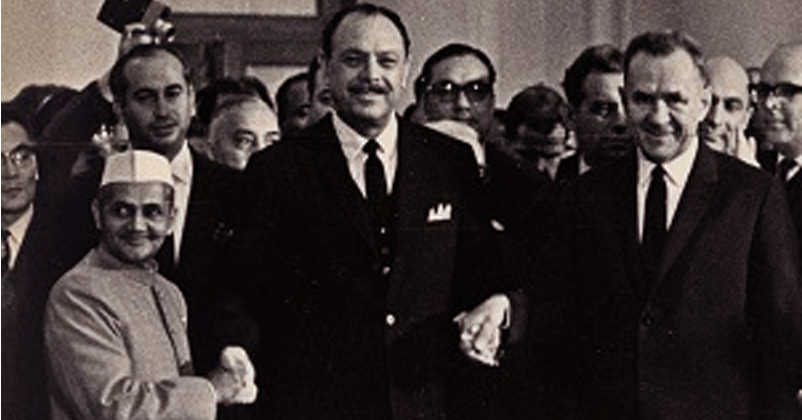10 January 1966: "Tashkent Declaration: The Art of Diplomacy in Resolving India-Pakistan Conflict"
Total Views |

The Tashkent Declaration was a peace agreement signed between India and Pakistan on January 10, 1966, following the Indo-Pakistani War of 1965. This declaration aimed to bring an end to the hostilities that had erupted between the two countries during war and normalize relations.
The declaration was signed in Tashkent, the capital of the Soviet Republic of Uzbekistan, under the mediation of Soviet Premier Alexei Kosygin. Indian Prime Minister Lal Bahadur Shastri and Pakistani President Ayub Khan were the signatories representing their respective countries.
The Tashkent Declaration consisted of six main points
1. Both India and Pakistan agreed to cease all hostilities and maintain the sanctity of the Line of Control (LoC) in the region of Jammu and Kashmir.
2. The two countries pledged to withdraw all armed forces to their pre-war positions, with the exception of a minor number of troops to be stationed in specified areas.
3. India and Pakistan agreed to restore diplomatic and economic relations, with the resumption of trade and communications.
4. Both countries expressed their commitment to resolving their differences through peaceful means and bilateral negotiations.
5. The Tashkent Declaration emphasized the importance of respecting each other's territorial integrity and sovereignty.
6. India and Pakistan agreed to hold discussions on the return of prisoners of war and the release of civilian detainees.
Despite the signing of the Tashkent Declaration, the peace between India and Pakistan was short-lived. Just a day after signing the agreement, Lal Bahadur Shastri passed away under mysterious circumstances, leading to speculation and conspiracy theories surrounding his death.
The Tashkent Declaration was criticised in India because of the omission of no-war pact and no mention was made of Pakistan denouncing it’s support for insurgency in Jammu and Kashmir. The Declaration ultimately failed as it didn’t address the larger issues underlying the Indo-Pak tensions and subsequent events revealed the persistent challenges in the relationship between the two nations.

